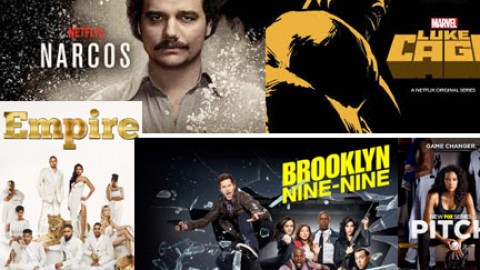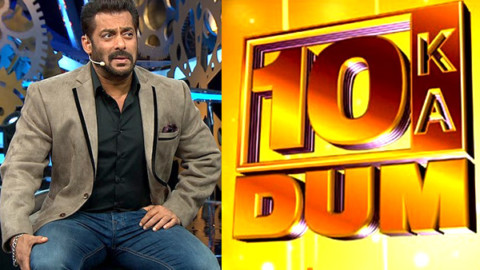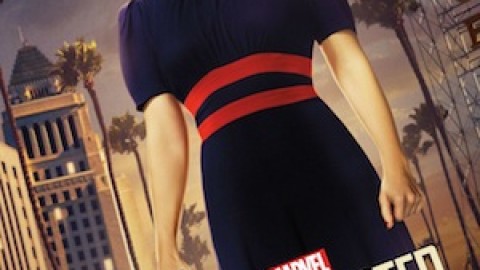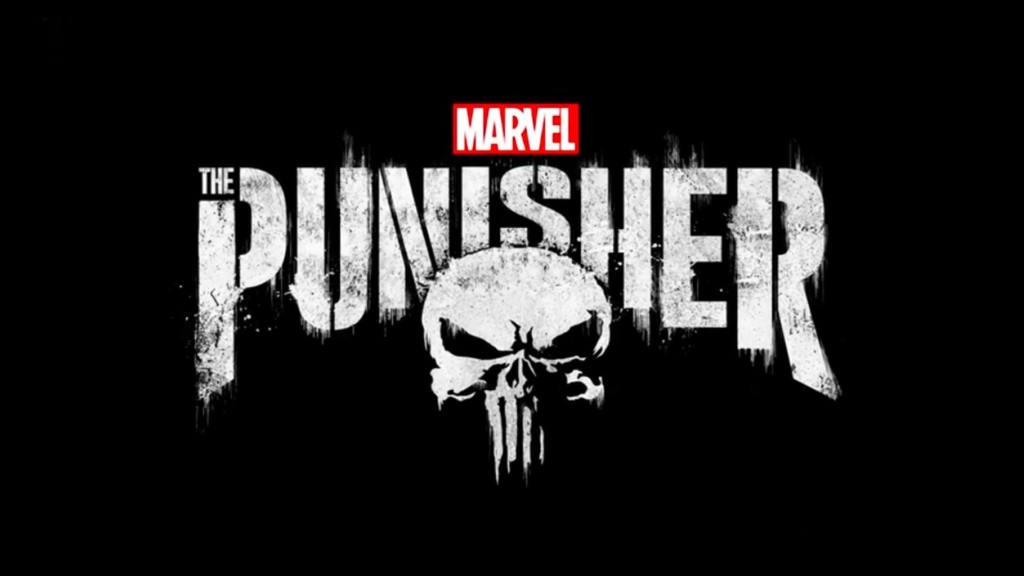 A guy gets punched, then punched again, then punched again and again and again. The result: face soup. It’s sound-tracked by a lot of wet noise and some primal, guttural grunting, a slow and deliberate mining of blood and teeth from a circle of bone and tissue. It’s visceral, nothing more so than the eyes of the man behind the fist. He’s unhinged, terrified, and high on the violence. You can’t stop watching him, even as you recoil from the gore. The urge to pull away is strong — at first, because it’s horrifying and revolting; later, because it’s been going on for kind of awhile now, and you’ve got stuff to do. It might be compelling, but it’s also too damn much. As goes the face soup, so goes “The Punisher”.
A guy gets punched, then punched again, then punched again and again and again. The result: face soup. It’s sound-tracked by a lot of wet noise and some primal, guttural grunting, a slow and deliberate mining of blood and teeth from a circle of bone and tissue. It’s visceral, nothing more so than the eyes of the man behind the fist. He’s unhinged, terrified, and high on the violence. You can’t stop watching him, even as you recoil from the gore. The urge to pull away is strong — at first, because it’s horrifying and revolting; later, because it’s been going on for kind of awhile now, and you’ve got stuff to do. It might be compelling, but it’s also too damn much. As goes the face soup, so goes “The Punisher”.
The first true spin-off of the Marvel/Netflix canon, Steve Lightfoot’s “The Punisher” aims to be more than 13 episodes of violence with a few MCU Easter Eggs thrown in. In this, it mostly succeeds, thanks largely to a terrific central performance and a concerted effort to be thoughtful with subject matter that could easily veer into exploitive territory. After dispatching the cartel he believes to be responsible for the death of his wife and children, Frank Castle (Jon Bernthal) chases down a quiet, empty life, battering his demons with a sledgehammer through a job in construction and retreating to an empty studio at night to read books and have nightmares. But violence always seems to find him, and when he’s tracked down by a mysterious computer whiz who goes by Micro (Ebon Moss-Bachrach), he finds that the skeletons in his closet are far from dormant. His past is bloody, and his future promises more of the same.
The story’s main thrust is a sound one — Castle and Micro attempt to track down the shadowy figures that turned a group of elite soldiers into an illegal torture-and-kill squad — but it’s not the only show in town. Seemingly hoping to avoid the mid-season slump typical of most Marvel shows, Lightfoot and company pack “The Punisher” to the rafters. Curtis (Jason R. Moore), an old war buddy of Frank’s, runs a support group for vets, notably Lewis (Daniel Webber of “11.22.63”), a young man with severe PTSD. The operation is funded by another war buddy, Billy (Ben Barnes), who spends his days building a private security and military operation and his evenings grieving his long-lost friends. He crosses paths with Homeland Security Agent Dinah Madani (Amber Rose Revah), hot on Castle’s trail, and her path intersects with Karen Page (Deborah Ann Wolf), and there’s also a lot of business with Frank visiting Micro’s wife (Jaime Ray Newman) and the kids.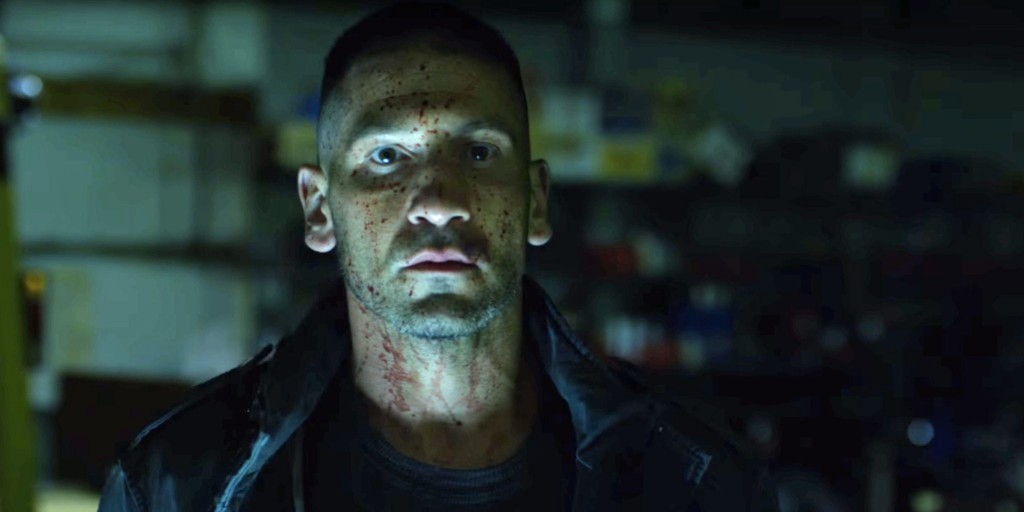
It’s a lot. Better too rich than too thin, to be sure, but “The Punisher” casts its net so wide that almost none of these stories get a fair shake. When they do, it’s usually the acting that closes the gap — Woll and Bernthal are so good together that it almost doesn’t matter that their scenes get snapped out quickly — but it’s hard to escape the feeling that, in giving us all that story, “The Punisher” doesn’t have much time for substance. It’s simultaneously too much and not enough.
If there’s one thing the show has just enough of, it’s Jon Bernthal. A few minutes are all that’s required to remind the audience of why the “Daredevil” standout earned himself a spinoff — he’s an incredibly arresting presence, somehow delivering a performance that’s as internal and restrained as it is inherently physical. He moves like a weapon, a heavy but deadly instrument. It’s a thoughtful, un-showy performance and Bernthal alone is reason enough to give “The Punisher” a try. His isn’t the only solid performance, but the same thinness of storytelling that robs some of the plot of its potency also does a disservice to the actors involved. Daniel Webber’s Lewis hums like a string pulled too tight, adding a level of menace quite removed from the garden-variety bad vibe, and Woll’s Karen Page is a reliably empathetic and complex figure, but nearly all the other characters get short shrift. Revah’s Agent Madani suffers in particular, a major problem for a plot that depends heavily on her dogged persistence and the questionable decisions that determination brings about.
If the characters feel underdeveloped, they’re nothing to the filmmaking. There are some interesting shots here and there, and The Punisher’s directors on the whole make the most of Bernthal’s physical immediacy, but it’s hard to shake the feelings that the series is constantly trying to match up to that first “Daredevil” hallway fight and falling far short. One sequence in particular, a race through a warzone that should crackle with danger, gives the sense that it was intended as one of those one-shot wonders, but the execution wasn’t there, so they compensated by using every trick they could dream up—shaky cuts, crossfades, disorienting angles, and so on. It’s all in service of creating a palpable sense of chaos and intensity, a feat the sequence only achieves when it calms the hell down and focuses in on Frank Castle’s face. The ambition is admirable, something also true of a later, formula-breaking episode that plays with multiple perspectives of the same horrifying incident, but the execution simply isn’t there, and while many of the series’ quieter moments hit hard, the more flailing attempts rob the big set pieces, many of them lengthy fight scenes, of some heft.
It’s the idea of the attempt at being worthy, even if the execution falls short, that perhaps most defines “The Punisher.” That killer Bernthal performance except, the series never quite hits its mark. There’s something admirable in choosing to tell a story about an incredibly violent character in a thoughtful manner, to make the cost of violence, the desire for release, and the resultant damage to mind and soul it’s most potent theme. As a character study, that’s what “The Punisher” achieves: it’s a gripping portrait of a man who is both victim and monster, accuser and accused, a gunslinger who’s not given the glistening sheen typical of “bad-ass” antiheroes, but is instead shown to be a broken man, both fundamentally decent and anything but. “The Punisher” aims to explore those very ideas throughout its ensemble: the mother who wishes nothing but death and pain on the people who subjected her children to horrors, the progressive reporter with the gun in her purse, the dedicated agent with questionable judgment.
My Verdict
My Ratings
2.5
Still, it never quite gets there, and in the end, it renders "The Punisher" the one thing that he should never be: a lightweight.






